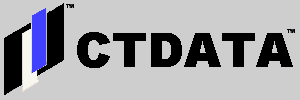Making Switch from Red Hat 7.2 to Fedora Core 1
Dave Aiello wrote, "Earlier this week, the hard disk on my laptop started to fail. When I received my replacement hard disk, I decided to install Fedora, the closest thing the world has to Red Hat Linux 10."
"This is a big version change for me. Prior to this, I had been a Red Hat Network subscriber and steadfastly stayed with Red Hat 7.2 until the point that it reached its end-of-life a couple of months ago."
"The differences between Fedora and Red Hat 7.2 are amazing. Fedora Core 1 is not Windows XP or Mac OS X Panther, but it's a huge improvement. If I have time next week, I'll put up some screen shots."
Update: "I decided to put a screenshot in an Operation Gadget article about rebuilding my laptop instead. The screenshot shown in the article is actually a thumbnail, so click through if you want to see more detail."
"The vast improvement that Fedora represents does not change my belief that Linux on the Desktop is not worth the effort. If price were no object, I'd be running Mac OS X Panther on a Powerbook G4 because I believe that would be the machine that would maximize my personal productivity. I'm still running Linux on my laptop because I can't afford to spring for something better at the moment."
"The most positive thing that Linux total immersion has done for me is made me a whole lot better at running servers with Linux on them. I could go into details, but where would I begin? Let me just say that there is almost never a technical issue on a Linux server that I manage that I haven't first encountered in managing my laptop."
